
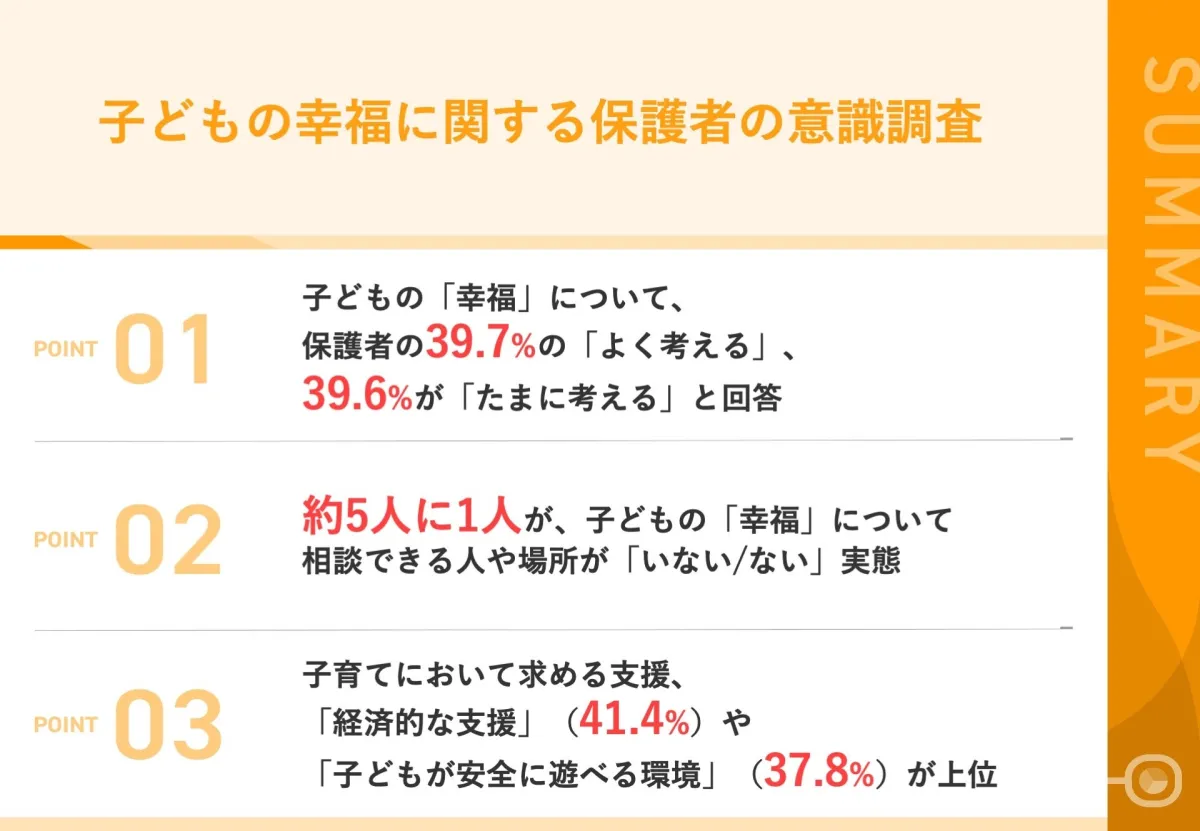
Understanding the Factors Influencing Children's Happiness in Japan: A Recent Survey
Overview of Child Happiness in Japan
Recent findings from a survey conducted by Asuka Co., Ltd. reveal insights into Japanese parents' perspectives on their children's happiness. The survey involved 111 parents with children aged 0-15 and aimed to explore their understandings and beliefs about what contributes to child happiness. Notably, the survey indicates a challenging reality for children’s well-being in Japan, where UNICEF ranked Japan 14th among 36 developed nations in terms of child happiness.
Survey Key Findings
1. Awareness and Reflection on Happiness
Approximately 39.7% of parents often think about their children's happiness, while 39.6% reflect on it occasionally. This indicates that while many parents are concerned, a considerable percentage might still be unengaged with their children's emotional needs.
2. Lack of Support Networks
Alarmingly, about 20% of parents reported having no one to turn to for advice or support regarding their child’s happiness. This highlights the need for more robust community and familial support systems to help parents navigate this critical aspect of their children's lives.
3. Desires for Support
When asked about the assistance they feel they need in parenting, 41.4% of respondents stated economic support as their primary concern, followed by the need for safe play environments at 37.8%. These findings suggest that both financial stress and child safety are paramount for parents.
Influencing Factors on Happiness
The survey also explored which factors parents believe are most crucial for their children's happiness. The leading response was mental health and emotional stability at 68.5%. This was closely followed by family love at 62.2%, and healthy friendships at 55.9%. Notably, physical health, while still important, was ranked lower, indicating a shift in focus towards emotional rather than just physical well-being.
Other Notable Responses
In open-ended responses, parents emphasized factors like self-confidence and satisfaction, indicating a broader understanding of what constitutes happiness beyond mere physical conditions. Terms like flexibility in thought, self-awareness, and support systems were recurring themes in responses, showcasing the complexity of happiness.
Awareness of Japan's Global Ranking
A particularly eye-opening finding was that 63.1% of parents were unaware of Japan's 14th place ranking in UNICEF's 2025 report on child happiness. This highlights a significant gap in public knowledge, prompting the need for awareness campaigns about children's well-being metrics.
In evaluating the ranking, 27.9% felt the position was low while 32.5% deemed it reasonable, indicating a mix of awareness and concern regarding Japan's standing in child happiness.
Active Engagement for Improvement
54.1% of parents reported that they actively engage in efforts to enhance their child’s happiness, with the most common actions being listening to their child’s concerns (70.0%) and spending more quality time together (51.7%). These actions are efforts led by parents to foster happier environments for their children.
Conclusion
This survey underscores the complexities surrounding children's happiness in Japan, revealing both an awareness of the importance of mental well-being and a concerning lack of discussion around these needs. The position highlighted in the UNICEF report should serve as a wake-up call to parents, educators, and policymakers alike to prioritize support for children's mental health and provide robust frameworks for community support systems. Enhancing parental awareness of resources and promoting discussion about child happiness are vital steps toward improving the well-being of future generations.
For additional details, the complete survey data can be downloaded here.
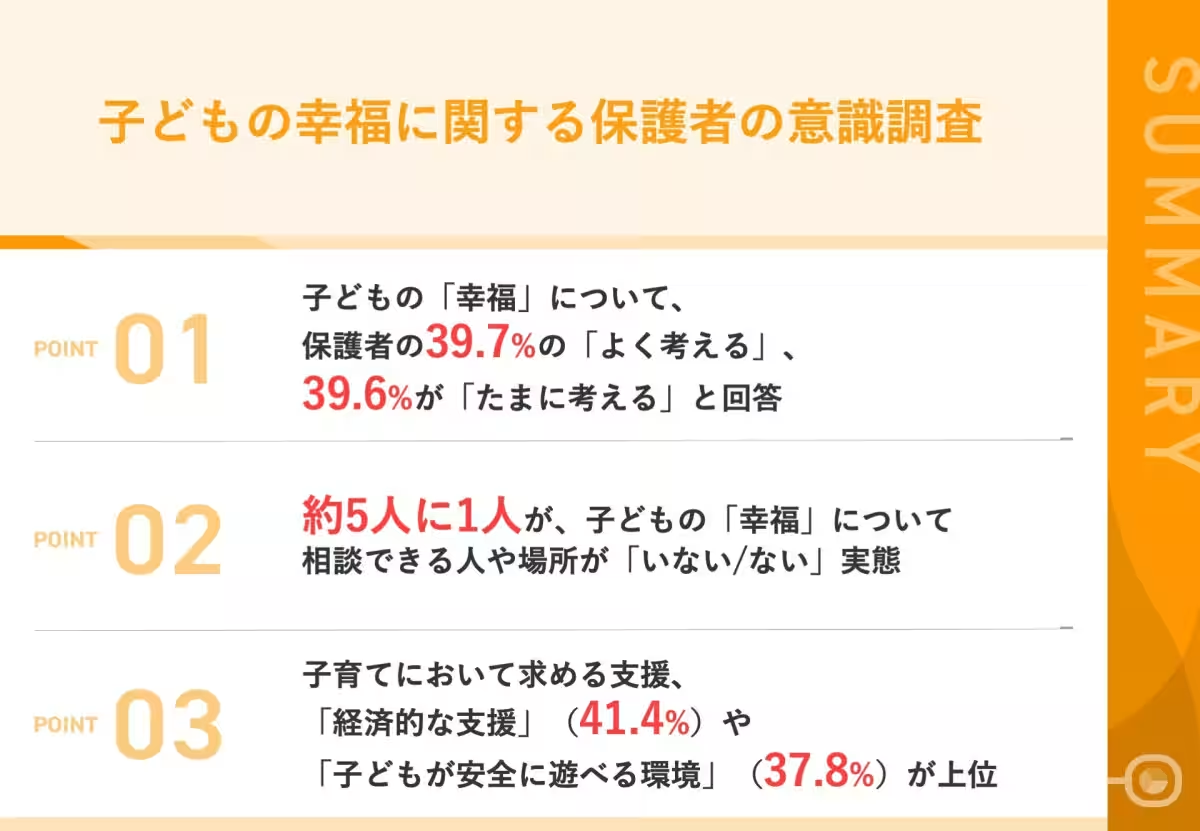
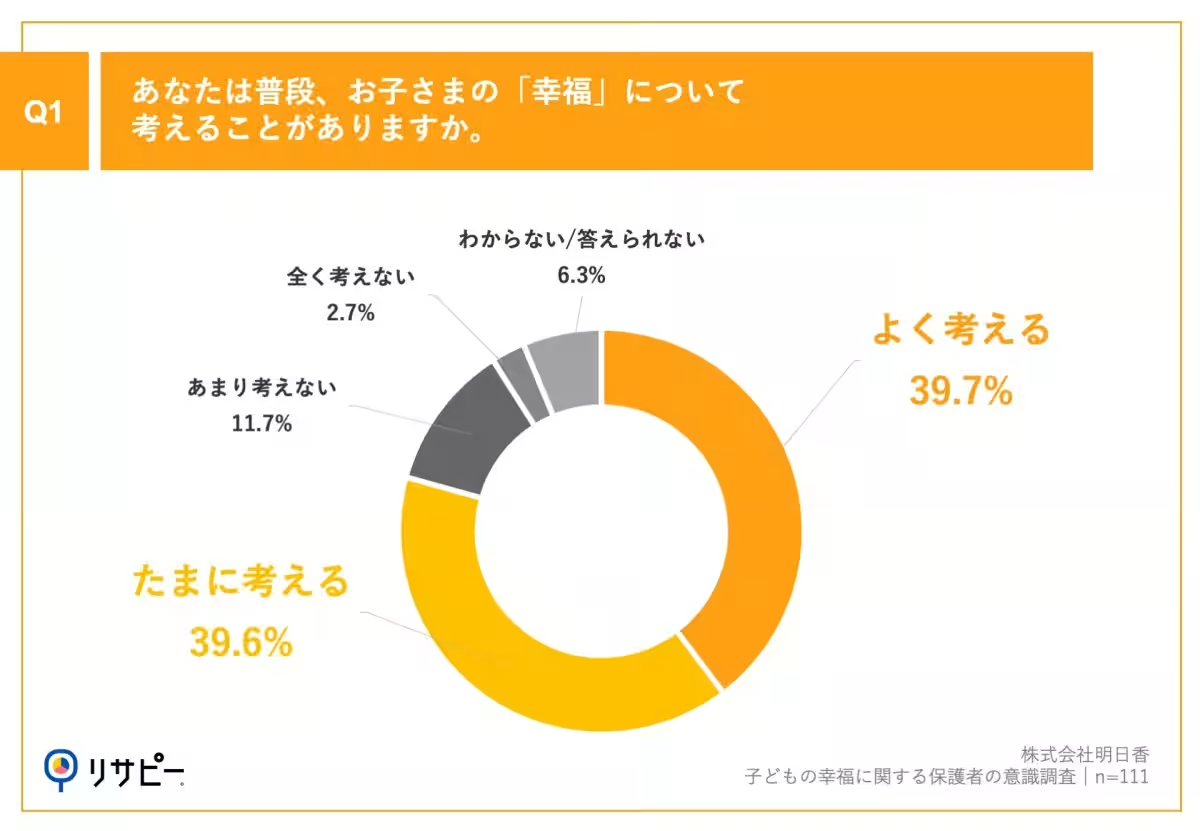
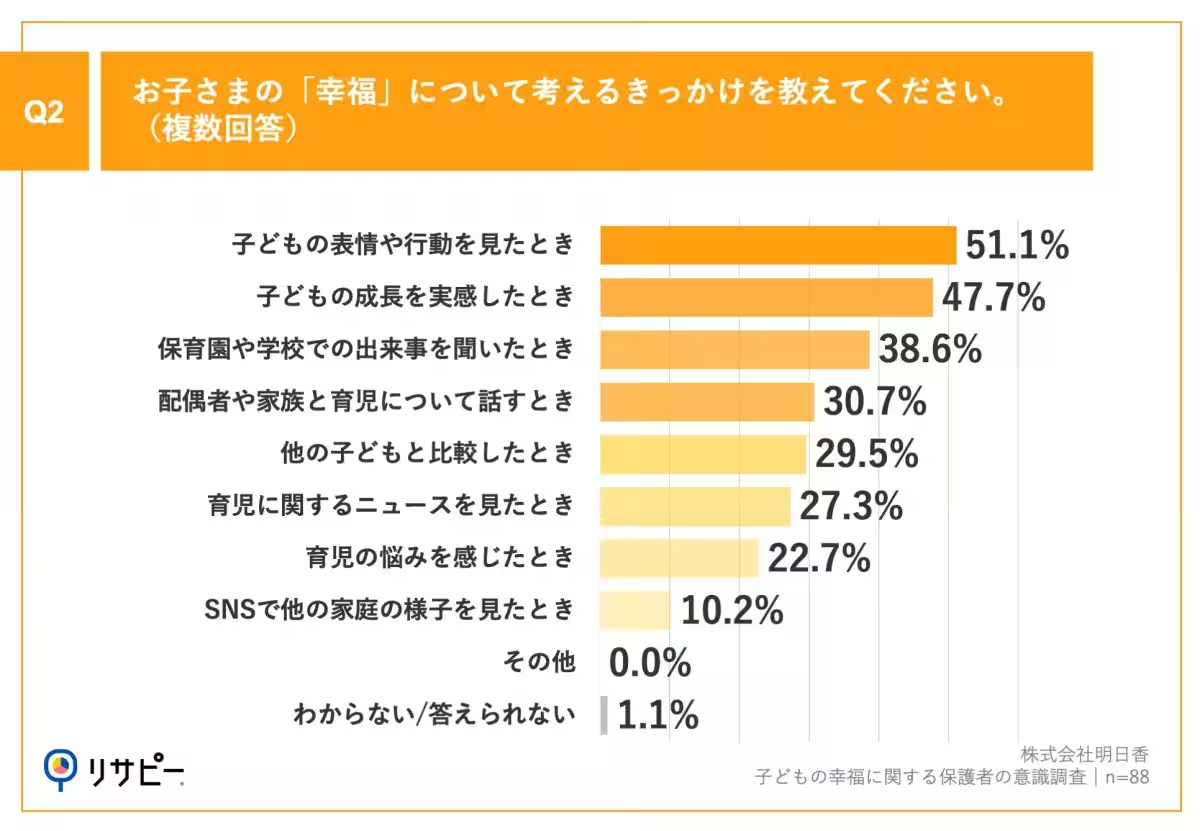
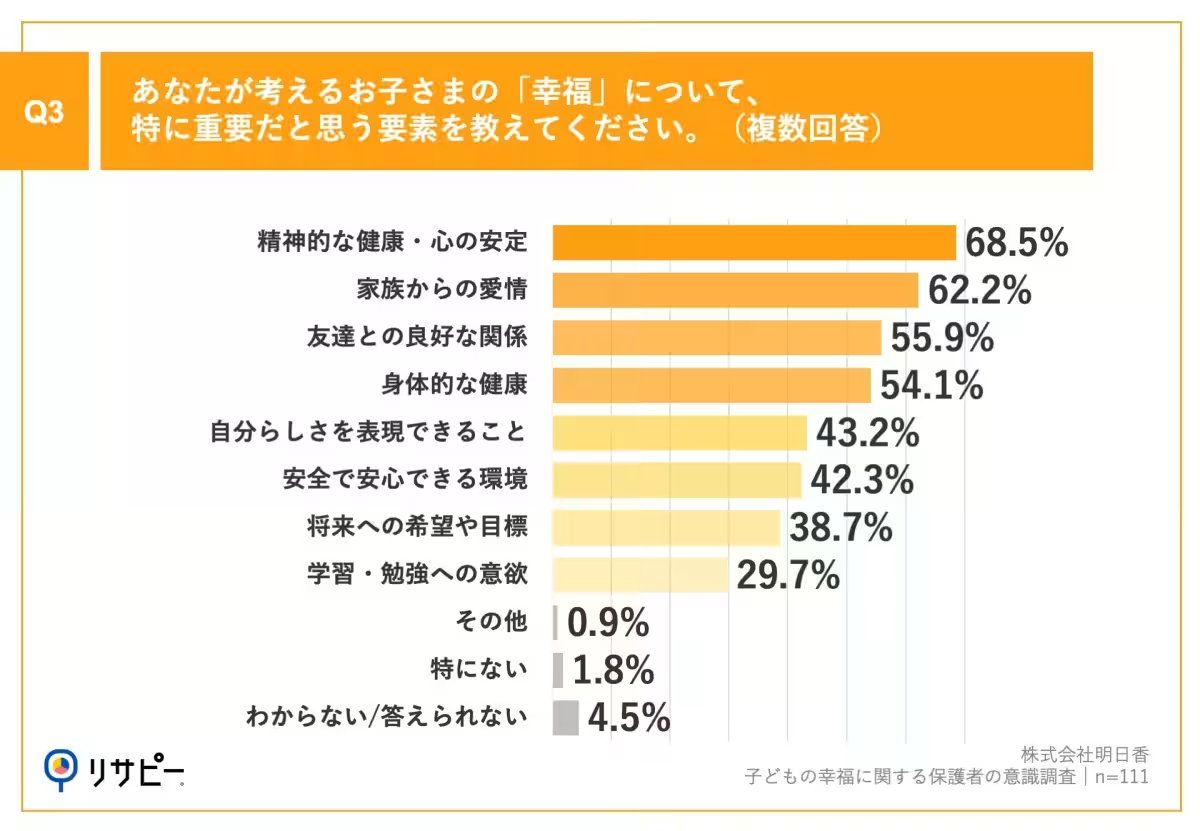
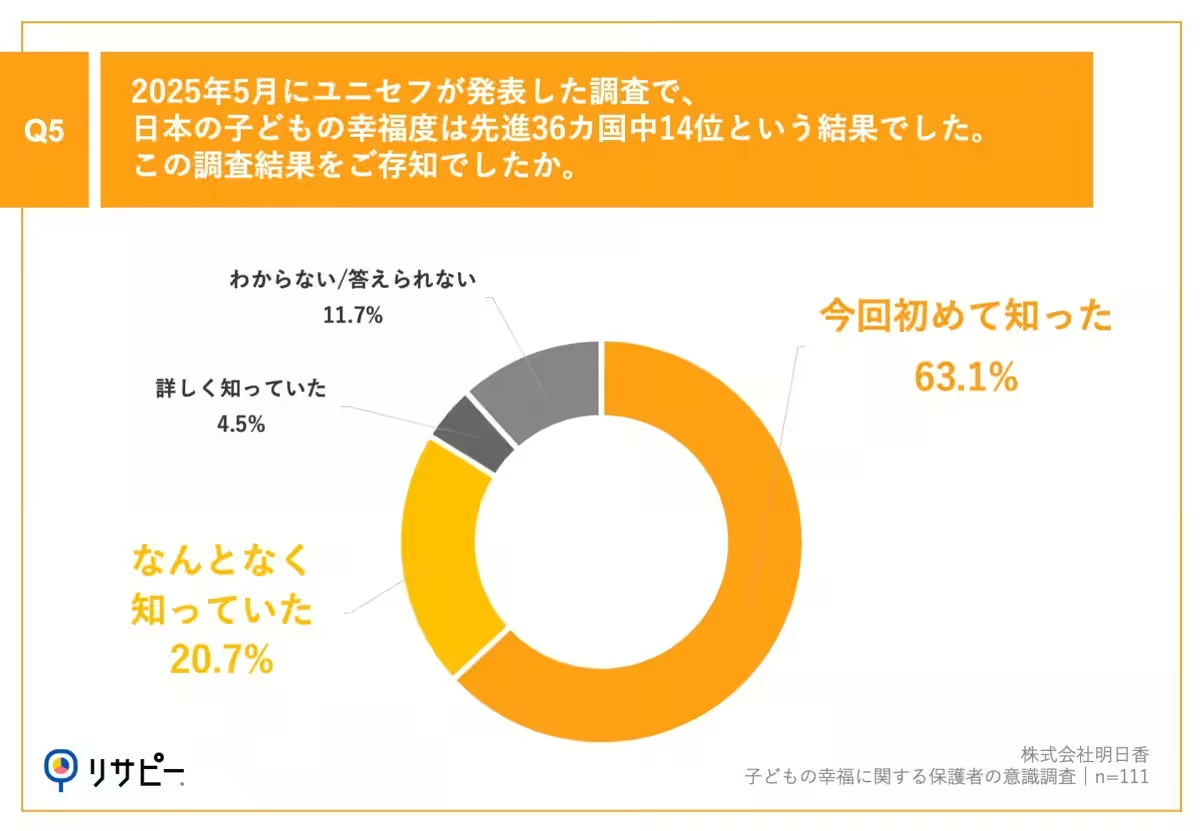
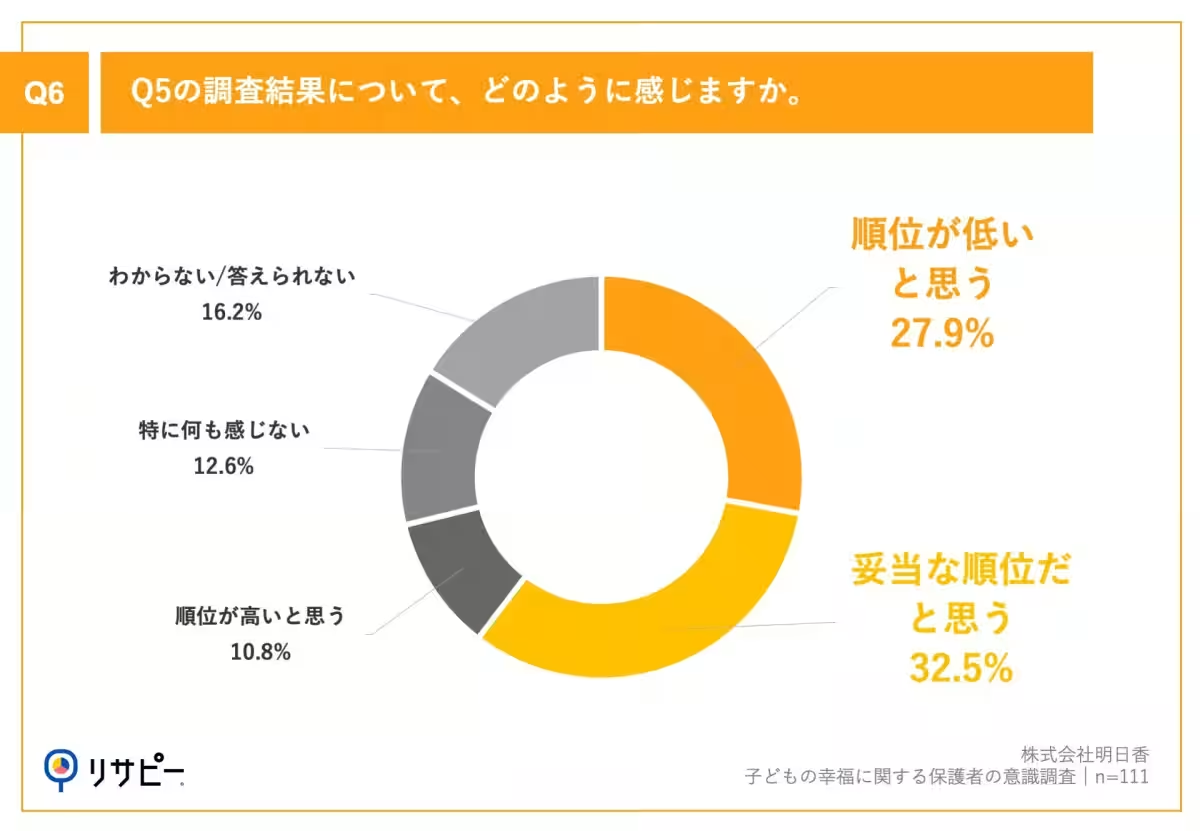
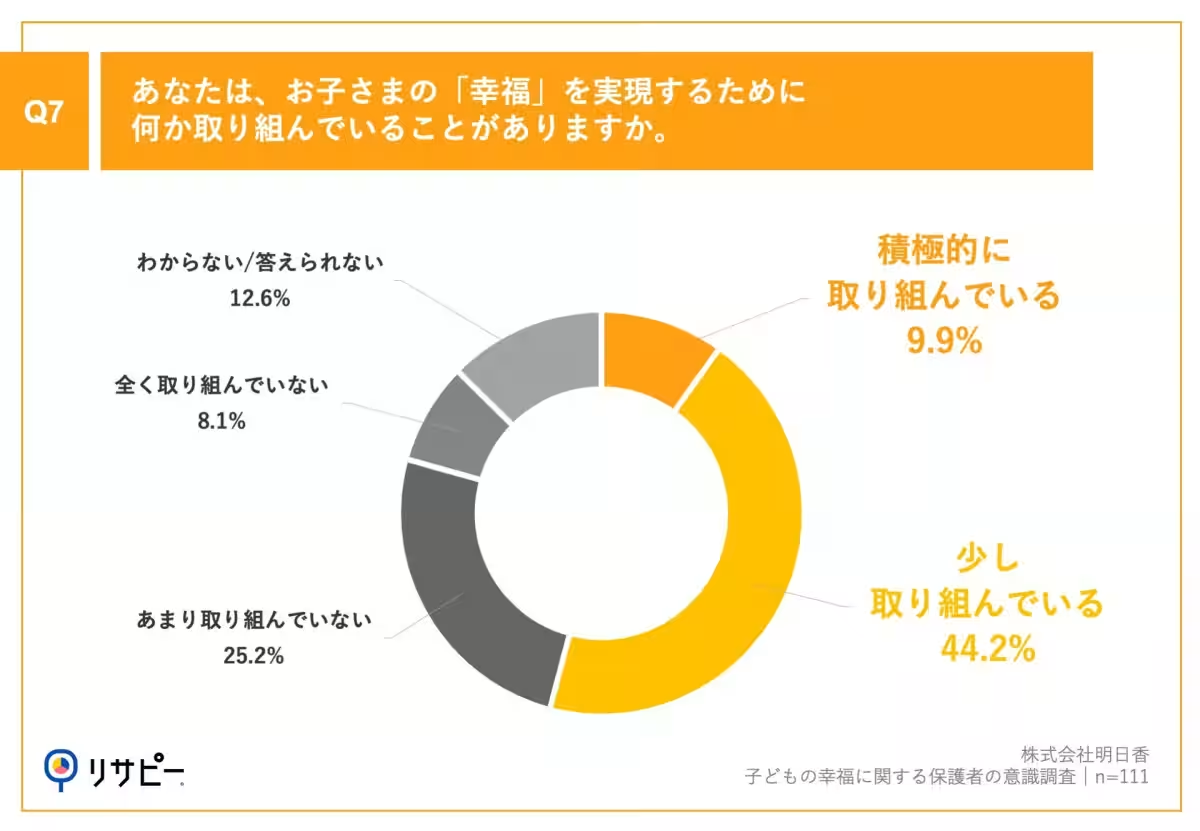
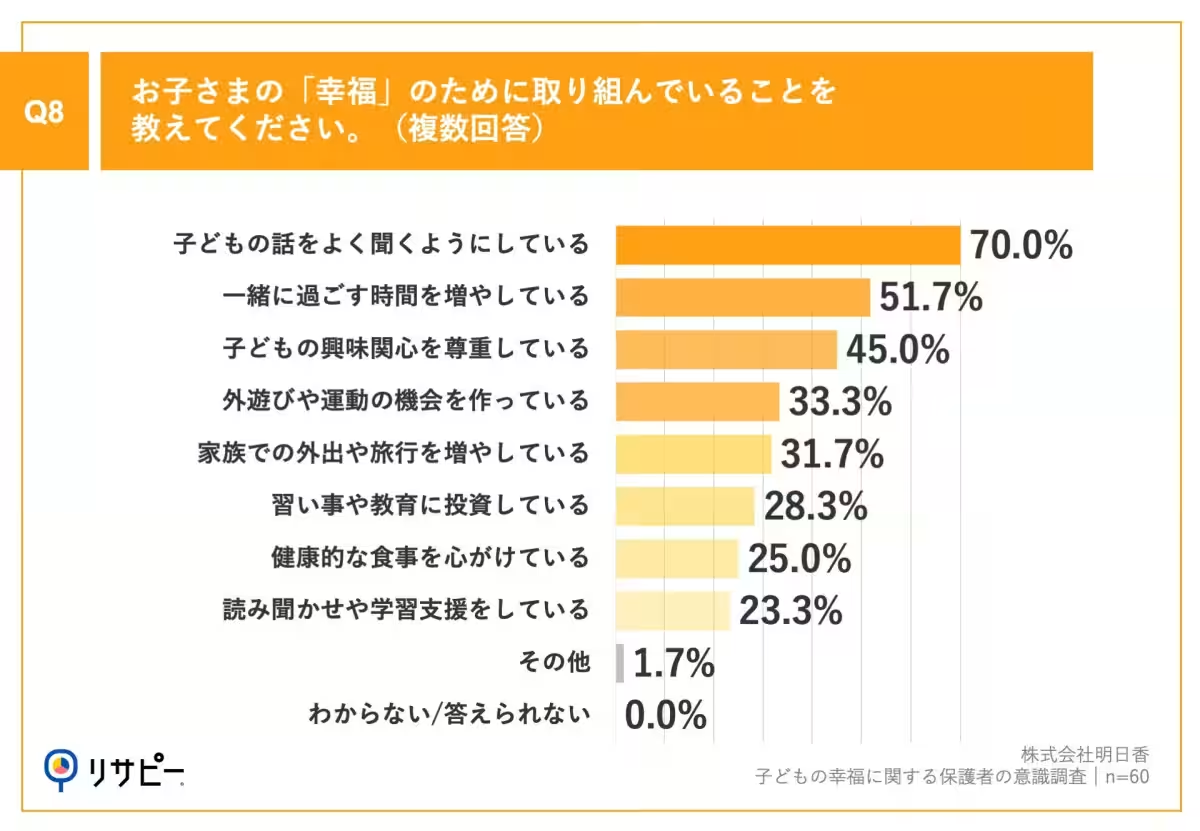
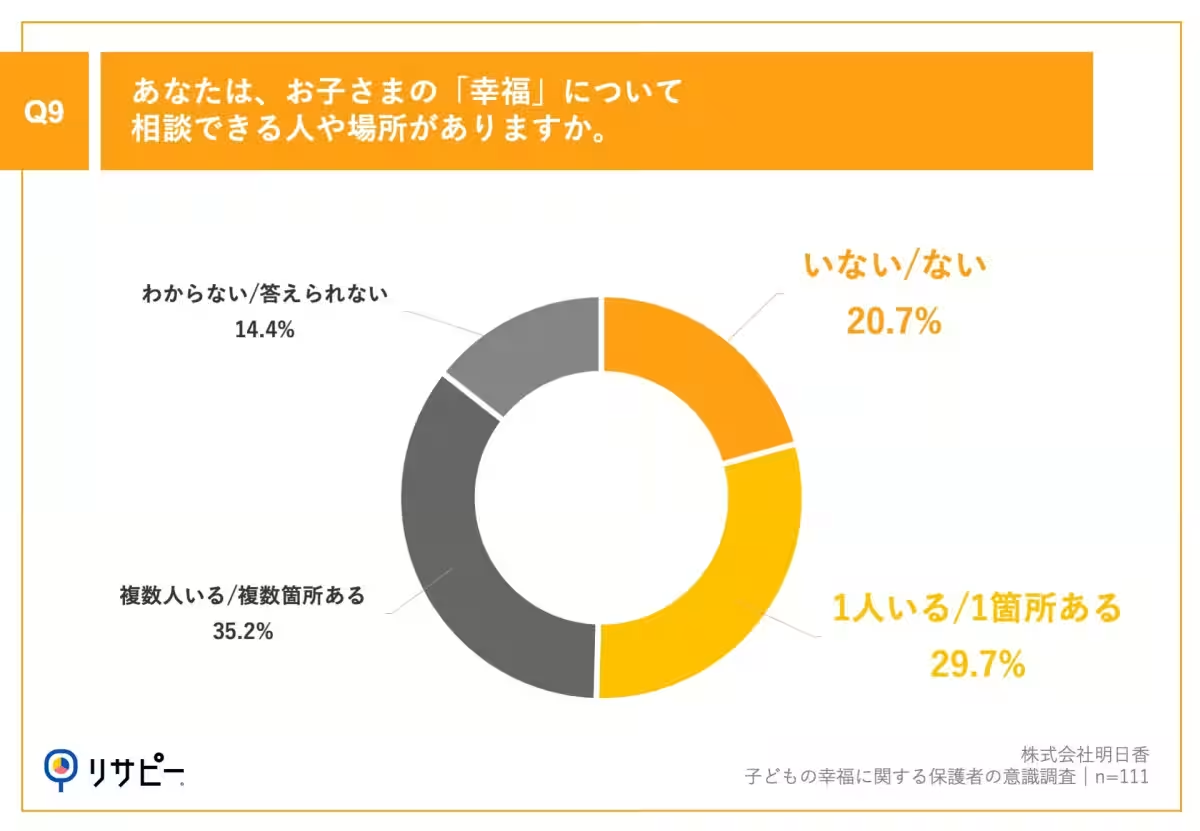
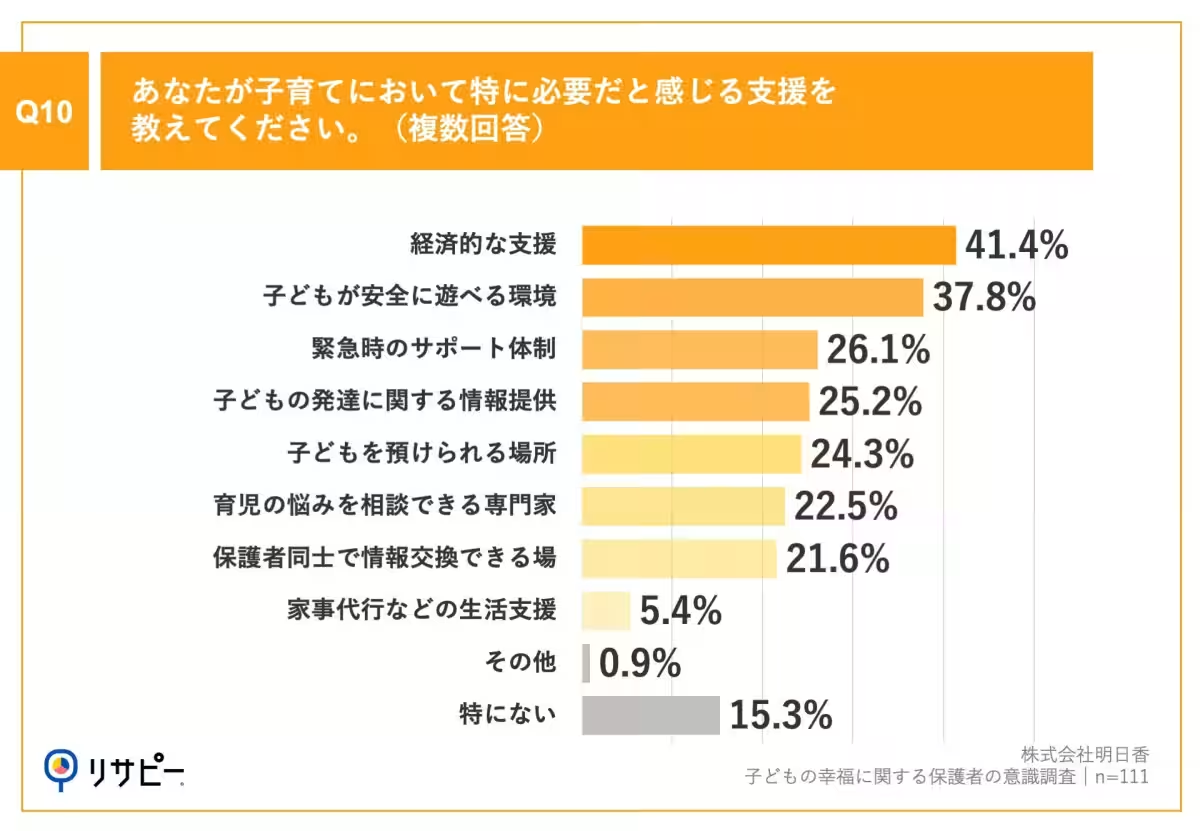
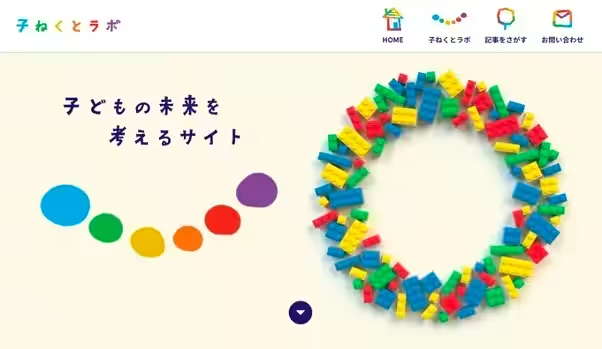
Topics People & Culture)










【About Using Articles】
You can freely use the title and article content by linking to the page where the article is posted.
※ Images cannot be used.
【About Links】
Links are free to use.